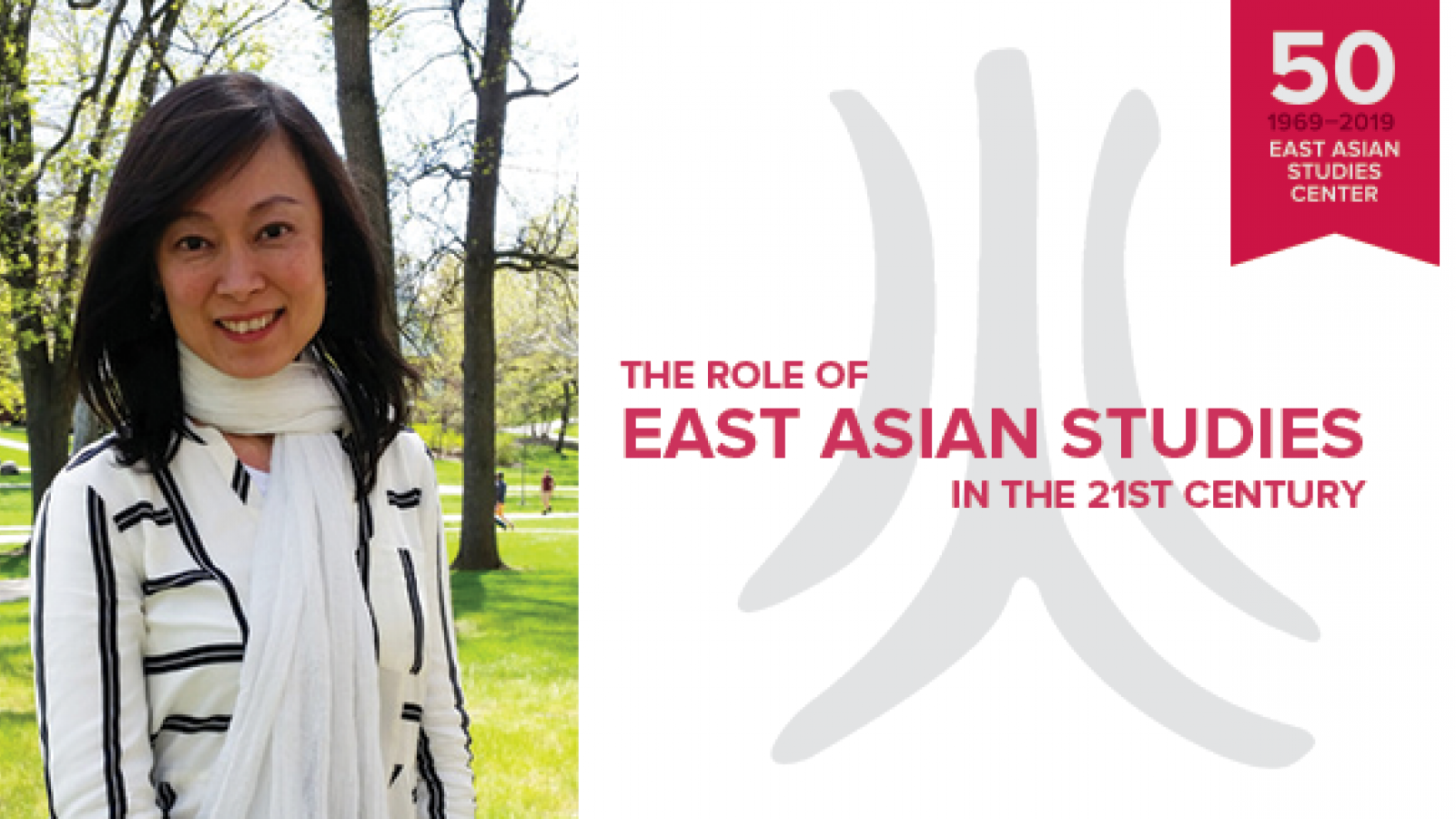EASC Lecture: Meow Hui Goh, "Practicing Human: As Gleaned from Early Medieval Chinese Texts"
The East Asian Studies Center 50th Anniversary Conference presents:
Meow Hui Goh
The Ohio State University
Title: Practicing Human: As Gleaned from Early Medieval Chinese Texts
Time: 2:15-3:15 PM
Abstract: As humans, we all do things, take actions; we do not just sit on our ideas or thoughts and theorize about the world; or, to put it in another way, even thinking thoughts, ideas, and theories is a form of doing. We are, in the sense that we are always doing something, practicing human. But there is more to that. To practice, as one dictionary tells us, is to “perform (an activity) or exercise (a skill) repeatedly or regularly in order to improve or maintain one’s proficiency.” If by constantly performing or exercising the work of human, we can improve or maintain our proficiency as human, the underlying assumption is also that we can digress, fail, or make mistakes. As Pierre Bourdieu points out in Outline of a Theory of Practice, “only a virtuoso with a perfect command of his [and I will add: or her] ‘art of living’ can play on all the resources inherent in the ambiguities and uncertainties of behavior and situation in order to produce the actions appropriate to each case, to do that of which people will say ‘There was nothing else to be done’….doubtless there are slips, mistakes, and moments of clumsiness…” (8). To practice is to be in a process; as human, we are always in the making. In this presentation, I will use the texts produced for Cao Pi’s (187-226) ascension to emperorship as examples of practice. By attempting to overcome the false sense of fixity and finality of a text, we attempt to overcome the false sense of fixity and finality of the past. A dynamic world of the past, the present, and the future then opens up for us.
Meow Hui Goh specializes in the literature, literary history, and cultural history of medieval China. She has published on prosody and poetics, memory and literature, the propagandistic function of literature, and other topics. Her current book project, The Double Life of Chaos: Living Memory and Literature in Early Medieval China, 180s–300s, traces different threads in the literary remembrances of Han dynasty’s collapse in its immediate aftermath. She is concurrently working on a longer-term project, “Fake News, Genuine Words: Literature of Wei 僞in Chinese Manuscript and Print Cultures,” which interrogates issues of media, reality-making, and authenticity through works lurking at the margins of Chinese literature. She regularly teaches premodern Chinese literature, bibliography and research methodology, and Classical Chinese.
Free and Open to the Public
This event is sponsored in part by a U.S. Department of Education Title VI grant to The Ohio State University East Asian Studies Center. Additional sponsors include: East Asian Studies Center, Institute for Chinese Studies, Institute for Japanese Studies, Institute for Japanese Studies, Department of East Asian Languages and Literatures, Department of History, Office of International Affairs.

